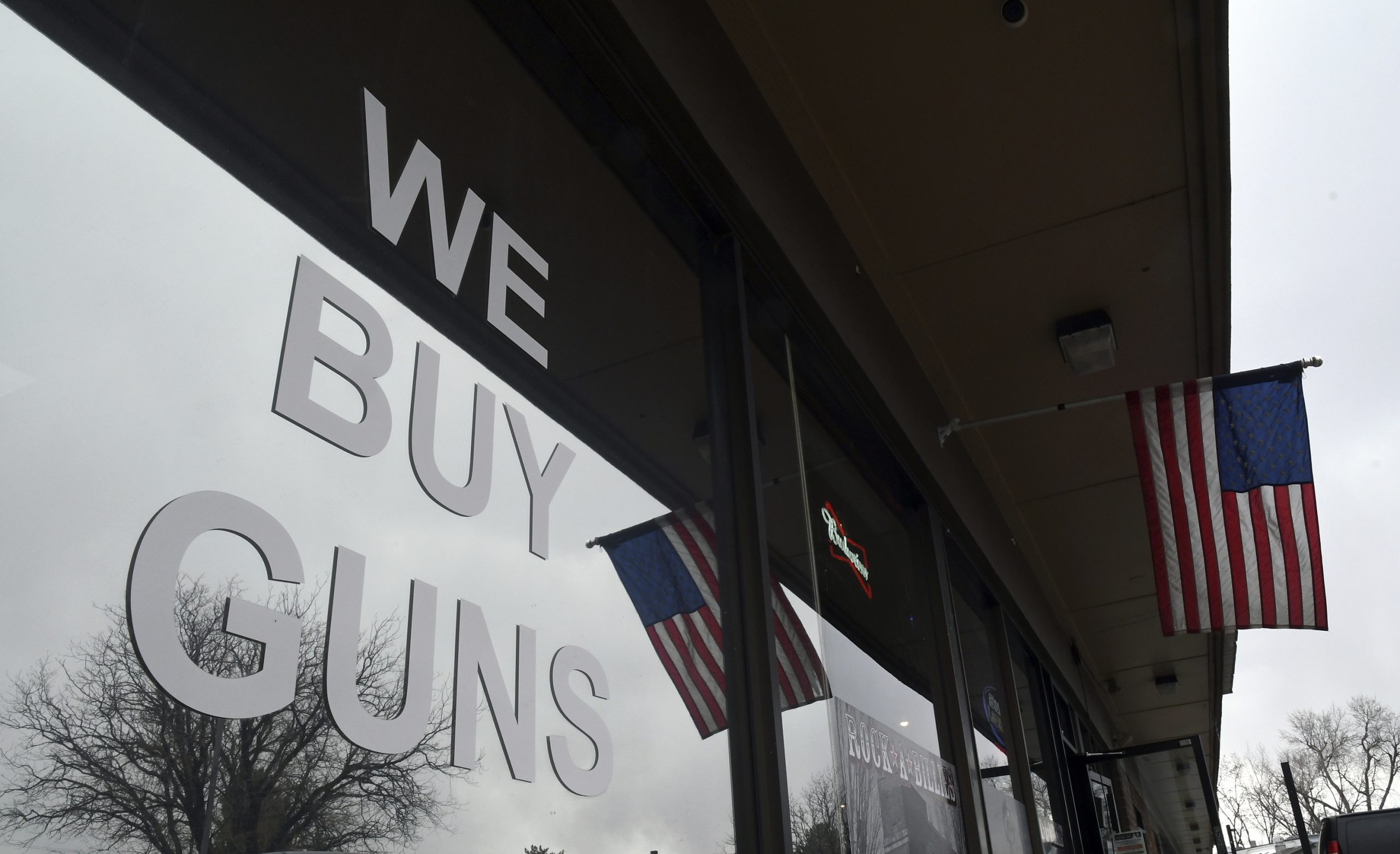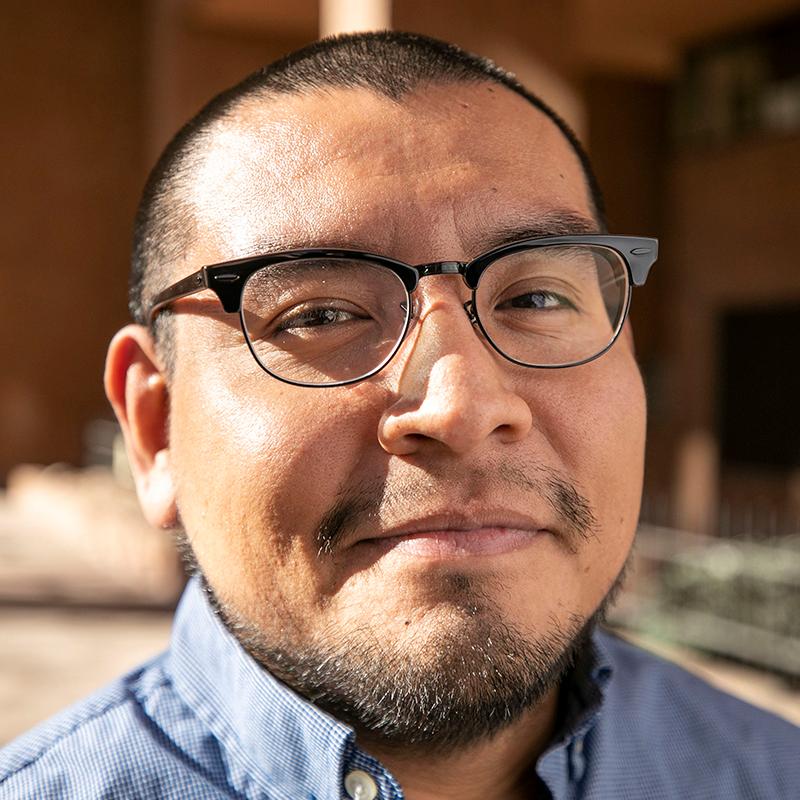
Just a few days after the tragedy in Boulder, we asked you what you wanted to know about firearms and gun laws in Colorado. We expected the conversation to be lively.
About 80 questions and comments came in. Some were concerned about safety. Others were concerned about their right to bear arms and how any new possible laws might infringe their rights. And most of you wanted to have a better understanding of the basics around guns in the state.
We sorted through them and chose 10 of the more practical questions.
We know the conversation isn’t slowing down and there will be many more inquiries, especially as the end of a busy legislative session approaches in June. Some state leaders are preparing to potentially introduce an assault-style weapons ban and firearm owners around the state have made clear that they’re opposed to any new legislation that could restrict their right to bear arms.
So we’ll do our best going forward to address new questions that may arise.
Without further ado, what you wanted to know about firearms and gun laws in Colorado.
What is the history of gun laws in Colorado?
Colorado has arguably been at the forefront of gun reform law over the past 20 or so years. Many of the state's gun laws have passed in response to mass shootings committed in the state. For example, in 2000, 70 percent of voters voted to close the gun show loophole after the Columbine High School shooting. Three of the four guns used then were purchased at a gun show.
What do current Colorado gun laws say?
Colorado has passed several laws within the last decade aimed at addressing gun violence. The most significant changes happened during the 2013 legislative session, following the 2012 Aurora Theater shooting and the shooting later that year at Sandy Hook Elementary school. Democrats held the majority in the state legislature. It wasn’t for another six years in 2019, again when Democrats were in control of the legislature that the state passed a so-called “red flag” gun law. Opponents of stricter laws say all of these measures infringe on Second Amendment rights, place burdens on law-abiding gun owners, and fail to prevent mass shootings.
Current gun law…
- Requires universal background checks including private sales.
- Bans high-capacity magazines and limits to 15-round magazines.
- Restricts gun ownership for certain domestic violence offenders.
- Allows a family member to temporarily petition a court to remove someone’s firearms if they’re deemed a threat to themselves or others. This is also known as the “red flag” gun law.
What is being proposed?
Two proposals around gun safety were introduced before the mass shooting in Boulder. One bill would require safe storage of firearms in many instances with the goal of preventing young children and others who aren’t supposed to access a firearm from gaining access. A different bill that has passed both chambers in the legislature and is awaiting Governor Jared Polis' signature would require people to report lost and stolen guns.
There are also preliminary discussions around a controversial ban on assault-style weapons and requiring waiting periods for gun purchases. Other ideas in the works include strengthening background checks, allowing cities to pass stricter gun laws than the state and putting money into an educational campaign about the state’s existing red flag gun law.
Doesn’t Colorado already have universal background checks? Why didn’t that stop the alleged Boulder shooter from purchasing a firearm?
Colorado does have a state requirement for background checks for all Federal Firearm Licensed dealer and private sales. The law came in response to the Aurora theater shooting. Ahmad Al Aliwi Alissa, the alleged Boulder shooter, was arrested in 2017 for a misdemeanor 3rd degree assault, but that would not have prevented him from purchasing a weapon.
Felony convictions and domestic violence misdemeanors that surface during a background check would prevent a firearm purchase.
How many Coloradans are denied a gun sale due to a failed background check each year?
The number of failed background checks varies from year to year. In 2020, some 14,227 people were denied a firearm purchase due to a failed background check, according to Colorado Bureau of Investigation data.
Isn't it a violation of HIPAA to release mental health records?
The Health Insurance Portability and Accountability Act prevents sensitive medical information from being shared. But a January 2016 federal rule change allows for the disclosure of “identities of those individuals who, for mental health reasons, already are prohibited by Federal law from having a firearm” to the National Instant Criminal Background Check System, which Colorado uses.
The rule “applies only to a small subset of HIPAA covered entities that either make the mental health determinations that disqualify individuals from having a firearm,” according to the U.S. Department of Health and Human Services.
How many gun shops are there in Colorado?
As of January 2021, there are 2,176 entities holding Federal Firearms Licenses in the state of Colorado, according to the Bureau of Alcohol, Tobacco, Firearms and Explosives. These are not limited to brick-and-mortar locations but can also be individuals who are licensed to deal firearms.
_
What is the Colorado largest magazine - gun and rifle - capacity?
Colorado lawmakers limited magazines to 15 rounds in response to the Aurora theater shooting in 2013. The shooter then fired on the theater crowd with a 100-round magazine.
Why is the gun lobby so powerful?
Second Amendment advocates and groups have largely been successful at stopping gun law reform at the federal level. They’re able to raise large amounts of funds and back certain candidates. But in Colorado, state lawmakers have actively passed gun restrictions over the past 10 years. Firearms are deeply ingrained in the state’s culture, and the 2013 changes to gun laws did lead to the historic recall of two state senators.
More recently, however, several recall attempts in 2019 where supporters cited the red flag law as one driving reason fizzled out and Rocky Mountain Gun Owners, a firearms lobby, changed leadership after all the candidates they backed in the 2020 election went down in defeat.
Define what “open carry” means in Colorado.
Colorado law allows for individuals to openly carry and display handguns and long rifles without special permits. Local governments have the authority to pass ordinances that prohibit open carry in certain buildings or public spaces. Denver, for example, has an ordinance banning open carry throughout the city.
Editor's Note: An earlier version of this story misspelled the acronym for the Health Insurance Portability and Accountability Act.








